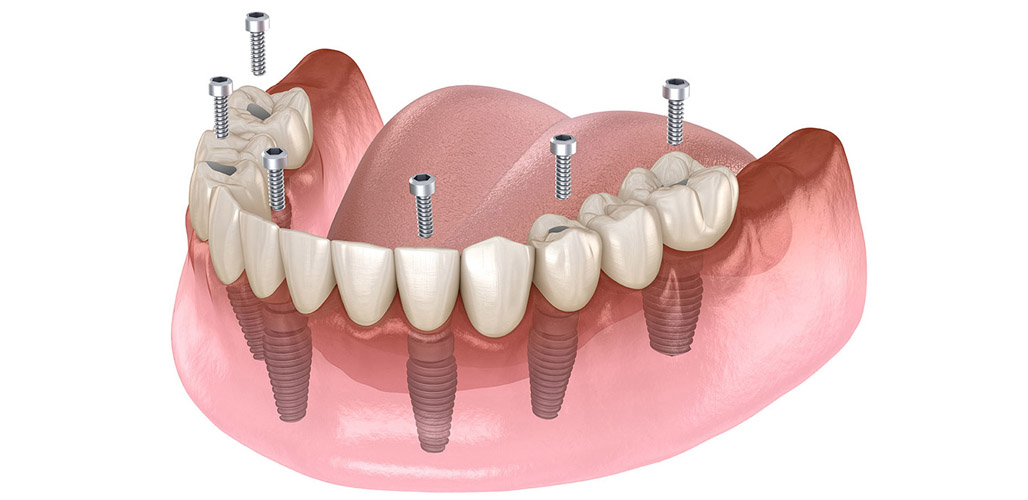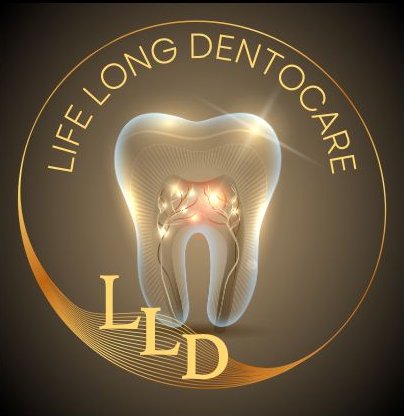All ON SIX TREATMENT
"All on Six" implant treatment is a dental procedure used to reconstruct a patient's mouth when they have lost a significant number of teeth in one or both jaws. It involves the use of six dental implants as the foundation to support a full arch of artificial teeth. This procedure is particularly suited for patients who have lost most, if not all, of their teeth and are looking for a permanent solution. Here's a more detailed look at the treatment and its advantages:

What is All on Six Implant Treatment?
- Procedure: Involves placing six implants in the jawbone. These implants act as anchors for a full arch of prosthetic teeth.
- Materials Used: The implants are typically made of titanium, which fuses well with the bone, and the prosthetic teeth are usually high-quality ceramics or composites.
- Full-Arch Restoration: This method is used to replace all the teeth in one arch (upper or lower jaw), providing a comprehensive solution for extensive tooth loss.
Advantages of All on Six Implants Procedure
- Improved Oral Function: Restores the ability to eat and speak comfortably.
- Aesthetic Appeal: Offers a natural-looking dental appearance.
- Bone Preservation: Helps prevent further bone loss in the jaw, maintaining facial structure.
- Durability and Longevity: Implants can last a lifetime with proper care.
- Convenience: Unlike dentures, they are fixed in place and do not require removal for cleaning.
- Comfort: More comfortable than traditional dentures as they don't press on the gums.
Duration of All on 6 Dental Implants in Turkey
The duration for All on 6 dental implant procedures in Turkey, or any location, typically involves several stages and can vary based on individual cases. Here's a general outline:
Initial Consultation and Planning: This includes dental exams, X-rays, and creating a treatment plan.
- Implant Placement: The surgery to place the implants. After this, there's a healing period that can range from a few weeks to several months for osseointegration (where the implant fuses with the jawbone).
- Abutment and Prosthesis Fitting: After healing, abutments are placed, and then the dental prosthesis (the artificial teeth) is fitted.
The entire process, from initial consultation to final fitting, can take anywhere from 6 months to over a year, depending on healing times and the complexity of the patient's dental situation.
In Turkey, the process may be quicker due to the availability of immediate loading implants and the efficiency of dental clinics. However, the exact timeframe should be discussed with a dental professional in Turkey, as it can vary significantly based on individual needs and the specific protocols of the dental clinic.
Always consult with a qualified dental professional to understand the specifics of the procedure, especially considering factors like bone density, overall health, and personal expectations.
What are our choices when we lose all or most of our teeth?
When you lose most or all of your teeth, there are several options for restoration and replacement. These options often depend on your oral health, the condition of your jawbone, and personal preferences. Here's a breakdown of the options you mentioned:
- Dental Implants with Zirconium Crowns: This option involves placing dental implants (titanium screws) in the jawbone to serve as roots for artificial teeth. Zirconium crowns are then attached to these implants. This can be done in combination with any remaining natural teeth, or solely with implants if no natural teeth are viable.
- All-on-4 Fixed Dentures: This technique uses four dental implants to support an entire arch of teeth. It's often chosen when there's significant tooth loss. The denture is fixed and non-removable, offering a more stable and natural feeling than traditional dentures.
- All-on-4 with Porcelain Crowns: Similar to the standard All-on-4, this option uses porcelain crowns for a more natural and aesthetically pleasing finish.
- 6 or 8 Dental Implants with Toronto Hybrid Structure: In this method, more implants (6 or 8) are used to support a titanium bar. Individual zirconium crowns are then placed over this bar, shaped like natural teeth. This offers a highly durable and natural-looking result.
- Partial/Full Dentures: If dental implants are not suitable, traditional dentures (either partial or full) are an option. These are removable and can be a more economical solution. They don't require surgery but might not offer the same level of comfort or functionality as implants.
Each of these options has its own set of advantages and considerations, including cost, durability, appearance, and the surgical or dental procedures involved. It's important to have a detailed consultation with a dental professional to determine the most appropriate solution based on your specific oral health needs and preferences.

